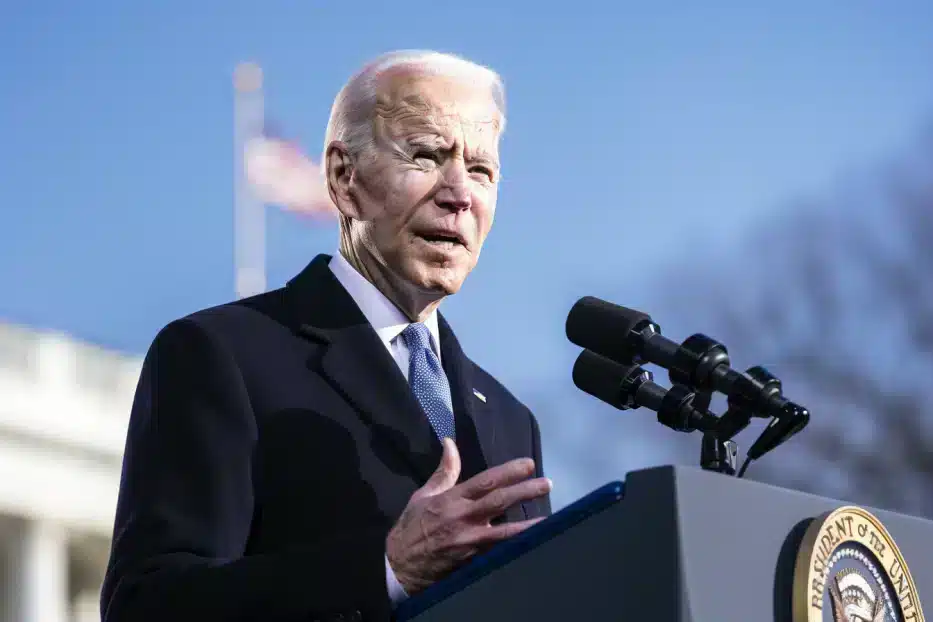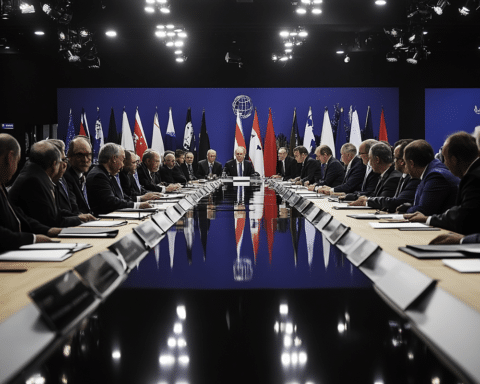President Joe Biden’s latest executive order marks a significant stride in the United States’ efforts to curtail Russia’s military advancements amidst the prolonged conflict in Ukraine. Signed on Friday, this directive empowers the U.S. Treasury Department to clamp down on financial institutions aiding Russia’s defence industry. The move is a calculated attempt to disrupt the Kremlin’s ambitions to replenish its military arsenal, which was severely impacted by the ongoing war in Ukraine.
The executive order introduces a new dimension to the U.S. sanctions against Russia. After nearly 22 months of conflict, the Russian military has reportedly lost over 13,000 equipment pieces, including tanks, drones, and missile systems, as per a U.S. assessment. Addressing this depletion, the Kremlin’s efforts to restock have been directly targeted by the Biden administration.
In addition to targeting financial institutions, the order also amplifies restrictions on Russian imports, notably diamonds and seafood, following a comprehensive review by U.S. agencies. Treasury Secretary Janet Yellen emphasized the seriousness of these measures, stating, “We expect financial institutions will undertake every effort to ensure that they are not witting or unwitting facilitators of circumvention and evasion.” She assured us decisive actions would be taken against institutions that abet Russia’s military supply chain.
This development aligns with the broader international stance against Russia’s military operations in Ukraine. Recently, Biden and G-7 leaders convened virtually to reaffirm support for Ukraine. This meeting underscored a growing unease in Washington over the financial burdens of the prolonged conflict, especially considering the ongoing negotiations for a substantial aid package for Ukraine. The proposed $110 billion package, encompassing aid for Ukraine and other national security priorities, faces political roadblocks, with GOP lawmakers demanding significant policy concessions.
The G-7 leaders have collectively resolved to restrict Russia’s access to international financial systems, targeting procurement networks vital to Russia’s military. Despite these efforts, Russian defence spending has surged by 75% in the first half of 2023, indicating a trajectory toward record military expenditures.
In a Financial Times op-ed, Deputy Treasury Secretary Wally Adeyemo highlighted the executive order’s timing and significance. He remarked, “By raising the stakes for banks supporting sensitive trade with Russia and continuing to sanction new front companies and procurement networks, our coalition is pouring sand into the gears of Russia’s military logistics.”
President Biden’s executive order is a tactical move in the intricate geopolitical chessboard, designed to impede Russia’s military capabilities by targeting its financial lifelines. As the conflict in Ukraine persists with no foreseeable conclusion, these measures reflect a steadfast commitment by the U.S. and its allies to challenge Russia’s military endeavours, hoping to bring about a strategic shift in the ongoing war.




